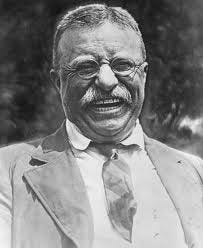Are You Raising Fat-Souled Children? Part I

I am not sure where I picked up the idea of fat-souled children. It could have been Angels in the Architecture. It may have been an article in one of the obscure periodicals I read. But the image has stuck with me. Just to clarify, the image in my mind is not some fat, lazy, bum living in his mother’s basement playing Halo. The image in my mind is one of contentedness and delight: My father napping in his easy chair after Thanksgiving dinner. My wife and I slipping into bed tired, but content after a hard day’s work. Sipping beer on the back deck after chopping fire wood. Finishing a large project. Spending the Lord’s Day with God’s people. Reading Beowulf in the dead of winter. These are a few of the images that come to my mind when I think of fat souls. My next two articles list ways I think we can raise fat-souled children, children who are content, who take joy in all God has done, who are not petty and dour.
The opposite of fat-souled would be lean, gaunt, under nourished, dying. When people see me do they see a soul overflowing with God’s goodness? Or do they see a dead withered tree that has no sap and no fruit? Many Christians have entered into the abundant life our Lord speaks of and yet their souls are barren, dead, joyless places. With this list I hope to give us and our children a path out of that type of life and into a place of fatness.
There are some points to make before I get to the list.
First, you cannot have fat-souled children if you are not growing a fat soul yourself. A fat-souled person loves God, delights in God, and delights in the world God has made and the people he has put here. If you are not working to become that type of person then your children will not look like that either. All instruction concerning children begins with “parent teach thyself.” This one is no exception.
Second, these are not instructions for making a machine that churns out fat-souled children. In other words, it is possible to do many of these things and still not have fat-souled children. We can take these things and use them to beat our children, go through the motions or do these things without love and joy. As in all of life, there are no automatics. But the things I list below, done in faith and love for God and neighbor, can help your children not have withered souls.
Third, I am not an expert at most of these things. Some I do better than others. Some I am still terrible at. Some I am learning to do better. I fall short of this many days and my children do as well. I make no claim to mastery of these points. The list is a sermon to myself and a target to aim at.
So without further ado, on to the list. The first four are the most important. After that I just put them down as they came to my mind.
Pray that God would make your children fat-souled. Pray that they would not be petty or shallow or self-absorbed. It is true that God alone works on the heart, thus prayer is essential.
Teach your children they are sinners. Then teach them that all of their sins are forgiven in Christ. Nothing, absolutely nothing, frees the soul like Jesus. Nothing frees the mind from anxiety like God’s goodness shown to us at the cross. Without Jesus our souls are lean indeed.
Teach your children about God’s character. Tell them about his holiness, his wrath, his mercy, his providence, his kindness, his chastening rod, etc. Teach them through the study of Scripture, but also teach them through your life.
Teach your children to worship with joy and gladness of heart. This includes the private worship of reading the Scriptures and prayer. But I am especially talking about corporate worship. Fat-souled children need worship that feeds them. They need to know they are meeting with God and his people every Sunday. They need to know that they were made to bow before God.
Teach your children to enjoy hard work. Hard work makes us fat-souled. Both blisters on our hands from raking leaves and weariness of mind from doing research can help make fat souls. Do hard work together. Your children should learn to work by themselves. But they should also learn to work as a family. Build something together. Make a meal together for someone who needs it. Improve your house by laboring together on a project. Even if the little ones cannot help much let them participate where they can. Make your home a place of productivity and not just consumption.
Teach your children to love all types of people. Show them how to love babies and the elderly and everyone in between. Teach them how to love the quirks in their brothers and sister and to delight in the differences between families. Look that family loves to play the accordion. That man wears his ties too short every Sunday. Too often we disdain differences instead of rejoicing in them. Find ways to help your children meet other nationalities and people from other areas of the country (except California :-)). There are wicked people out there. There are stupid people out there. But do not raise your children to be suspicious of everyone they meet or to be uncomfortable around different people. Teach your children that people are fascinating. And that means you, as the parent, must delight and rejoice in your child’s quirks. You must find them fascinating.
To be continued…<>разместить рекламу в интернете
The post Are You Raising Fat-Souled Children? Part I appeared first on Kuyperian Commentary.

